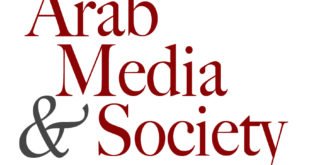Streaming video--the transfer of video files on the Internet--can be accessed by any computer connected to the Internet at high speed or via broadband. With the increased availability of such connections, which allow the transmission of larger amounts of data, including larger pictures at higher resolution, and improved audio, to …
Read More »US International Broadcasting Strategies in the Arab World: An analysis of the Broadcasting Board of Governors’ strategy from a public communication standpoint
The US government has devised a plan to repair its image in the Arab World. This plan includes generously-funded, government-sponsored international broadcasting, known in the past as Voice of America or Radio Free Europe. Today, under the guidance of the Broadcasting Board of Governors (BBG), two new programs have been …
Read More »Blending in: Arab Television and the Search for Programming Ideas
From the 1890s until the 1950s, the inventors of television thought of it as a means for disseminating information in a fashion similar to print, radio, and film. By the early '60s, media use and consumption emerged as a cultural concern in the debates on the "consumer society." The '70s …
Read More »NourSat, the New Satellite in the East
There's a new satellite beaming towards the Middle East: "NourSat" (meaning "Light" Sat) is part-owned (30 percent) by the giant Mawared Group, the same company that has financed Orbit this past 10 years. NourSat is the name given to a handful of beams on a new Intelsat satellite operating …
Read More »Balancing Act: UAE Satellite TV Channels Between National and Pan-Arab Markets
With a GDP of $81 billion in 2003, up 4.5 percent from the previous year, and an 8.7 percent population growth rate that brought the population to more than four million in 2003, the United Arab Emirates (UAE) have all the economic and business ingredients for the most dynamic Arab …
Read More »Resource Documents – MMDS and the New Satellite Television Technologies: A Media Explosion in the Arab World
In 1995, TBS senior editor and publisher S. Abdallah Schleifer presented two substantially similar papers at two different conferences a week apart--the Broadcast Education Association convention in Las Vegas and the 12th Annual Symposium of the Center for Contemporary Arab Studies (CCAS), devoted that year to "The Information Revolution in …
Read More »Interview with Sheikh Yusuf al-Qaradawi
17 October, 2004 in Doha, Qatar Sheikh Yusuf al-Qaradawi is one of the best known, longest established, and most controversial of Arab world satellite preachers. TBS's senior editor S. Abdallah Schleifer interviewed Sheikh al-Qaradawi in Doha about his relationship with the medium. TBS: When did you first start speaking about Islam on television? What …
Read More »Report on the 58th Annual Middle East Institute Conference: “The Use and Limits of Power in the Middle East”
Panel: "Media Diplomacy: Who Controls the Control Room?" National Press Club, Washington, D.C. 5-6 October 2004 By far the most lively panel during October's annual Middle East Institute (MEI) conference in Washington, D.C., was "Media Diplomacy: Who Controls the Control Room?" featuring interesting insights from independent filmmaker Jehane Noujaim and The …
Read More »Arab Women and the New Media: Empowerment or Disempowerment?
Cambridge Arab Media Project: The Media and Political Change in the Arab World, 29-30 September 2004 "Empowerment" is a term that appeared for the first time in the UN's World Survey on the Role of Women in Development (1986). It referred to the productivity of agriculture, and was defined as a process …
Read More »On the Role of Media in the Current Transition Phase in Iraq
Cambridge Arab Media Project: The Media and Political Change in the Arab World, 29-30 September 2004 Iraq has suffered decades of war and brutal dictatorship which have left the country weak and exhausted. The situation in post-war Iraq is unstable, Iraqi civil society has been destroyed, and the economy is …
Read More » Arab Media & Society The Arab Media Hub
Arab Media & Society The Arab Media Hub

